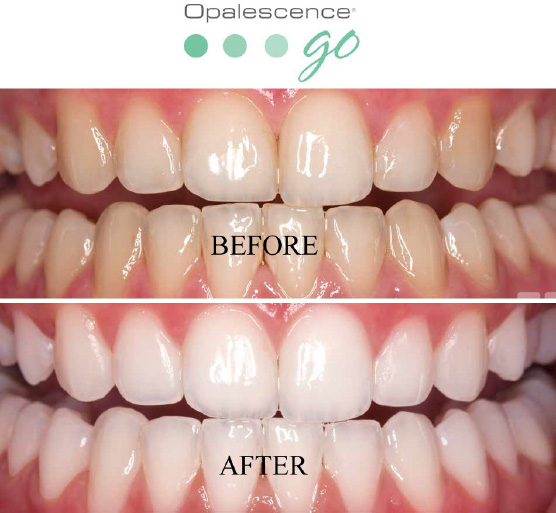A bright, healthy smile can light up a room and boost your confidence, and maintaining great oral hygiene is key to achieving that! In this article, you’ll discover why taking care of your teeth and gums is essential not just for your appearance, but also for your overall health. With practical tips and insights, you’ll learn how simple daily habits can help you prevent dental issues and ensure that your smile remains radiant for years to come. Embrace the secrets to dental wellness and unlock the power of your smile! Have you ever wondered why maintaining good oral hygiene is so essential for your overall health and well-being? You might think of your smile as just a cosmetic feature, but it plays a much bigger role in your life than you realize. Let’s dive into the importance of oral hygiene and how it contributes to a healthy smile, making you feel confident and promoting better health overall!
What is Oral Hygiene?
Understanding what oral hygiene entails is the first step toward appreciating its importance. Oral hygiene refers to the practices you engage in to maintain your mouth, teeth, and gums in a healthy condition. This includes daily activities such as brushing, flossing, and rinsing. It’s all about preventing oral diseases and ensuring your mouth stays in tip-top shape.
Daily Oral Care Routines
A strong oral hygiene routine can be your best friend when it comes to achieving and maintaining a gorgeous smile. So, what does this routine look like? Here’s a quick breakdown of the basics:
| Activity | Frequency | Duration |
|---|---|---|
| Brushing | Twice daily | Two minutes each time |
| Flossing | Once daily | Daily |
| Rinsing | As needed | 30 seconds |
These simple steps, when included in your daily routine, can help you avoid many oral health problems.
The Connection Between Oral Hygiene and Overall Health
You might be surprised to learn that your oral health is closely linked to your overall health. Many studies show that poor oral hygiene can lead to various systemic diseases.
Common Health Issues Linked to Poor Oral Hygiene
Maintaining your oral hygiene is not simply about having a bright smile; it can have far-reaching effects on your health. Here are some health issues that are often linked to poor oral hygiene:
- Heart Disease: Bacteria in the mouth can travel to your bloodstream and lead to inflammation in your heart.
- Diabetes: Gum disease can make it more difficult to control your blood sugar levels.
- Respiratory Infections: Oral bacteria can be inhaled into your lungs, leading to respiratory issues.
- Pregnancy Complications: Poor oral health can increase the risk of preterm birth and low birth weight.
Taking care of your oral hygiene not only helps your teeth and gums but also plays a significant part in safeguarding your body from these health concerns.

This image is property of pixabay.com.
Understanding the Consequences of Neglecting Oral Hygiene
It can be easy to overlook oral hygiene tasks in our busy lives. However, neglecting your oral care can lead to a cascade of problems down the line. So, what happens if you don’t keep up with your oral hygiene?
Common Issues that Arise from Poor Oral Hygiene
- Cavities: One of the most common consequences of neglecting oral hygiene, cavities occur when plaque builds up on your teeth, creating acid that erodes your enamel.
- Gum Disease: Initially appearing as gingivitis, untreated gum disease can progress to periodontitis, which can lead to tooth loss.
- Bad Breath: Poor oral hygiene can result in persistent bad breath, also known as halitosis.
- Tooth Sensitivity: Neglecting your teeth can lead to enamel erosion, resulting in painful sensitivity to hot or cold foods.
Being proactive about your oral hygiene can save you from these painful and expensive problems in the future.
The Role of Brushing and Flossing in Oral Hygiene
Now that you understand why oral hygiene is critical, let’s break down the key components of brushing and flossing—two of the most crucial elements of your daily routine.
The Importance of Brushing
Brushing your teeth is one of the most fundamental practices for a healthy mouth. Here are some key points to remember:
- Choose the Right Toothbrush: A soft-bristled toothbrush is generally recommended as it’s gentle on your gums while still effective at cleaning your teeth.
- Use Fluoride Toothpaste: Fluoride plays a crucial role in preventing cavities and strengthening tooth enamel.
Here’s a simple brushing technique to keep in mind:
- Angle Your Toothbrush: Position the brush at a 45-degree angle to your gums.
- Use Gentle Circular Motions: Brush each quadrant of your mouth, making sure to cover all surfaces.
- Don’t Forget Your Tongue: Bacteria love to hide on your tongue, so give it a gentle brush too!
The Importance of Flossing
Flossing is often overlooked, but it’s just as crucial as brushing. Here’s why:
- Removes Plaque Between Teeth: Toothbrushes can’t reach the tight spaces between your teeth, where plaque and food particles often hide. Floss effectively cleans these areas.
- Prevents Gum Disease: Regular flossing helps keep your gums healthy by reducing plaque build-up.
Flossing Techniques to Master
- Choose the Right Floss: Look for waxed or unwaxed floss based on your personal preference and the spacing between your teeth.
- Use Proper Technique: Gently slide the floss between your teeth in a C-shape and clean along the side of each tooth.
- Don’t Rush It: Take your time while flossing to ensure you’re effectively removing any debris.

This image is property of pixabay.com.
The Role of a Healthy Diet
You may be surprised to learn that what you eat plays a significant role in your oral health. A balanced diet can help keep your teeth and gums healthy.
Foods that Boost Oral Health
Here’s a list of foods that can help promote good oral hygiene:
| Food Type | Benefits |
|---|---|
| Dairy products | Rich in calcium; strengthen enamel |
| Leafy greens | High in vitamins; promote healthy gums |
| Crunchy fruits | Apples and carrots help naturally clean your teeth |
| Nuts | Contain healthy fats; support tooth health |
| Lean proteins | Help repair tissues in the mouth |
Incorporating these foods into your diet can help you maintain a healthy mouth and smile!
Foods to Avoid
On the flip side, some foods can be detrimental to your oral health. Here are some to keep in mind:
- Sugary Snacks: Candies and sweets can lead to plaque build-up and cavities.
- Starchy Foods: Chips and bread can stick to your teeth and create acid.
- Acidic Drinks: Soft drinks and fruit juices can erode your enamel.
By being mindful of your diet, you’ll tremendously improve your oral hygiene efforts.
Regular Dental Check-ups: Why They Matter
You might already have a routine care plan in place at home, but don’t overlook the importance of visiting your dentist regularly. These visits play a key role in your oral hygiene and overall health.
What to Expect During a Dental Check-up
During your dental visit, you’ll typically experience the following:
- Professional Cleaning: Your dentist or hygienist will remove any plaque and tartar that you may have missed at home.
- Examination: Your dentist will evaluate your mouth for any signs of decay, gum disease, or other oral health issues.
- X-rays if Needed: Depending on your age and risk factors, X-rays may be taken to assess the health of your teeth and jawbone.
Recommended Frequency of Dental Visits
As a general guideline, you should visit your dentist at least twice a year for regular check-ups and cleanings. However, if you’re experiencing specific issues, your dentist may recommend additional visits.

This image is property of pixabay.com.
Special Considerations for Oral Hygiene
While everyone should maintain good oral hygiene, certain groups may require additional attention to their oral health. Let’s look at some considerations.
Oral Hygiene for Children
Teaching children proper oral hygiene is crucial for establishing lifelong habits. Here are some tips:
- Start Early: Begin brushing your child’s teeth as soon as they emerge, using a small smear of fluoride toothpaste.
- Make It Fun: Use songs or apps that make brushing enjoyable to encourage your little ones to keep it up.
- Lead by Example: Show your children the importance of oral hygiene by practicing good habits yourself.
Oral Hygiene for Seniors
As you age, your dental needs may change. Here are a few things to watch out for:
- Increased Risk of Gum Disease: Older adults may experience an increased risk due to reduced saliva production and other health issues.
- Denture Care: If you wear dentures, proper cleaning and maintenance are essential for oral health.
- Medication Side Effects: Some medications can lead to dry mouth, increasing the risk of cavities. Talk to your dentist about strategies to combat this.
Addressing Common Myths About Oral Hygiene
Despite readily available information, many myths still float around regarding oral hygiene. Let’s debunk some of these for you!
Myth: Bleeding Gums is Normal
Many people believe bleeding gums during brushing is normal. However, this is a sign of gum disease and should not be ignored! Make sure to consult your dentist if you experience this.
Myth: You Only Need to Brush Once a Day
While brushing once a day is better than nothing, ideally, you should brush twice daily for optimal results. This practice helps remove plaque before it has a chance to form cavities.
Myth: Whitening Toothpaste is All You Need for a White Smile
Whitening toothpaste can help remove surface stains, but it can’t bleach your teeth. Regular dental cleanings and possibly professional whitening treatments are the best ways to achieve a truly radiant smile.

Final Thoughts
Now that you know the significance of oral hygiene, it’s imperative to take action! Establishing and maintaining an effective oral care routine will empower you to enjoy a healthy, beautiful smile while also promoting your overall health. Remember that your smile is one of your most important assets, so invest time and effort into caring for it.
Make it a friendly challenge to prioritize your oral hygiene starting today. By brushing, flossing, eating a nutritious diet, and visiting your dentist regularly, you can pave the way for a healthier mouth and, in turn, a healthier life. Your beautiful smile awaits!


